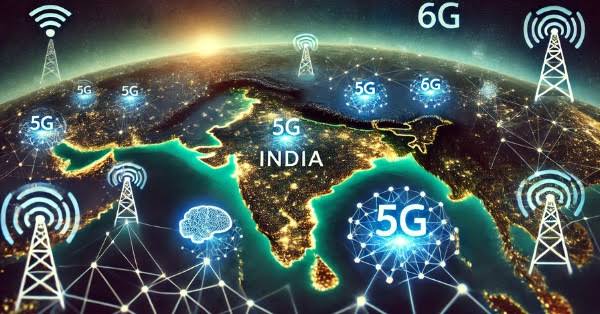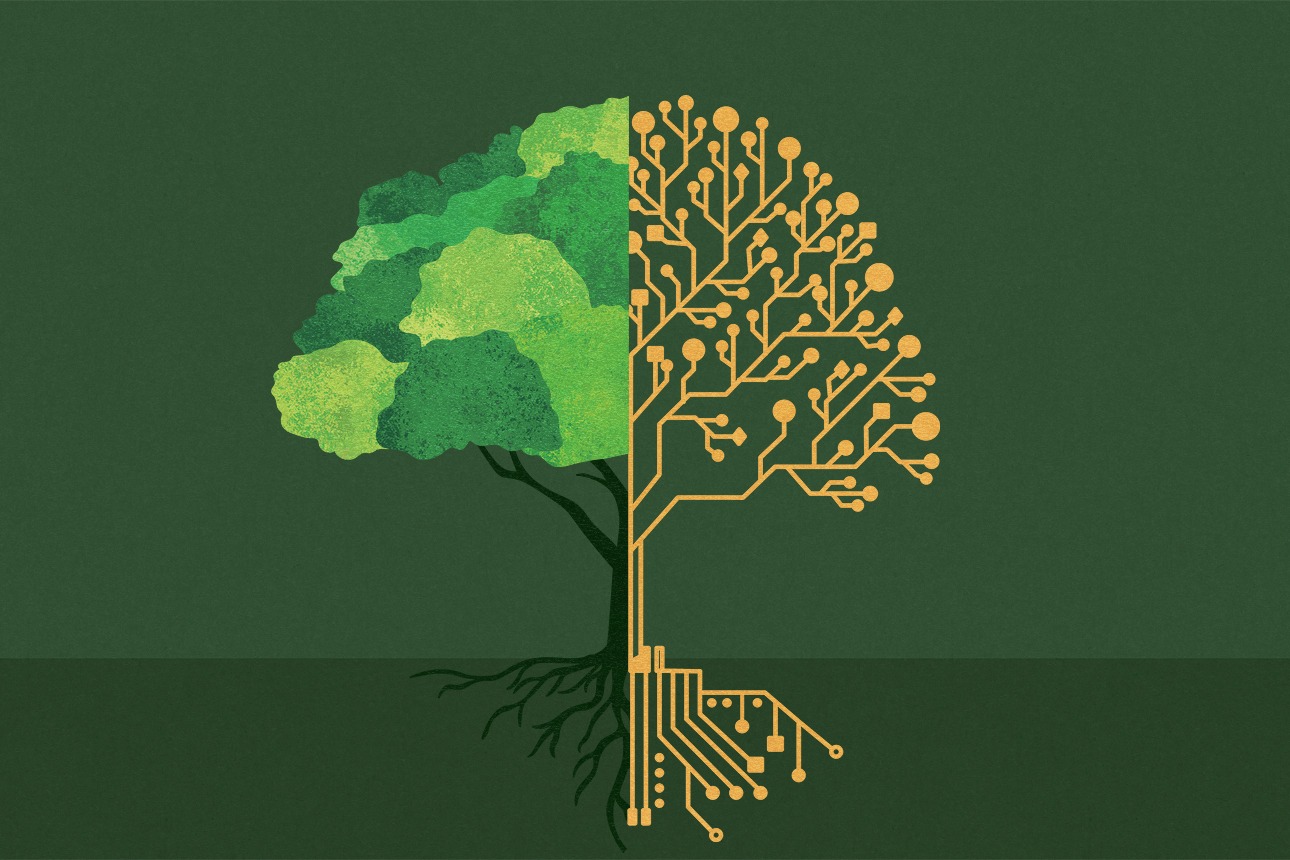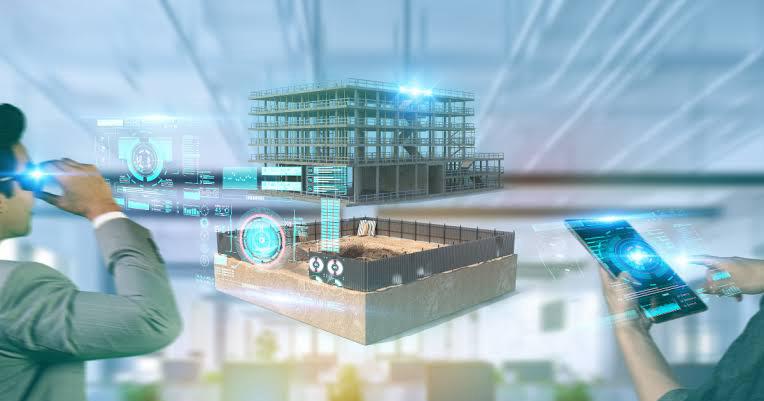
From AI to 5G: Emerging Technologies Driving India’s Economic Growth
Emerging technologies are shaping India’s economic future by enhancing productivity, innovation, and competitiveness. AI, 5G, IoT, blockchain, quantum computing, renewable energy, autonomous vehicles, AR/VR, nanotechnology, and cloud computing drive growth across industries, from agriculture to finance.
✨ Raghav Jain

Introduction
India is on the cusp of a technological revolution. From artificial intelligence (AI) to 5G connectivity, emerging technologies are reshaping industries, creating jobs, and driving unprecedented economic growth. With a young, tech-savvy population and government initiatives supporting innovation, India is leveraging these technologies to enhance productivity, efficiency, and global competitiveness.
Understanding these technologies, their applications, and their economic impact is crucial—not just for policymakers and businesses, but for every citizen. In this article, we will explore the most influential emerging technologies, how they are fueling India’s economic growth, and practical ways businesses and individuals can adapt to stay ahead. In the past decade, India has witnessed a remarkable transformation in its technological landscape, driven largely by the adoption of emerging technologies. These innovations are not merely changing the way businesses operate; they are redefining the country’s economic trajectory, boosting productivity, creating employment opportunities, and enhancing global competitiveness. Among these technologies, Artificial Intelligence (AI), 5G, blockchain, Internet of Things (IoT), and advanced robotics have emerged as key drivers of India’s economic growth.
Artificial Intelligence, often regarded as the cornerstone of the Fourth Industrial Revolution, has permeated multiple sectors of the Indian economy. From healthcare and agriculture to finance and education, AI is enabling smarter decision-making, predictive analytics, and operational efficiency. In agriculture, AI-powered systems analyze soil health, monitor crop growth, and predict pest infestations, allowing farmers to optimize yields and reduce resource wastage. In healthcare, AI algorithms facilitate early disease detection, personalized treatment plans, and telemedicine services, thereby increasing access to quality healthcare in rural and underserved regions. AI’s influence extends to finance, where it supports fraud detection, credit scoring, and customer service automation, improving efficiency and trust in the financial system. By automating repetitive tasks, analyzing large datasets, and providing actionable insights, AI is helping Indian businesses increase productivity and reduce operational costs, directly contributing to economic growth.
Equally transformative is the rollout of 5G technology, which promises to revolutionize connectivity in India. Unlike previous generations of mobile networks, 5G offers ultra-fast speeds, minimal latency, and massive device connectivity. This technology is critical for supporting emerging sectors such as smart cities, autonomous vehicles, and industrial automation. With 5G, urban infrastructure can be monitored in real time, traffic congestion can be reduced, and energy consumption optimized. Industries such as manufacturing are leveraging 5G to enable remote monitoring of machinery, predictive maintenance, and seamless integration of robotics, thereby increasing productivity and reducing downtime. Moreover, 5G is facilitating the growth of digital services, online education, and telehealth, enabling equitable access to services across urban and rural areas. The economic implications of 5G are profound, with estimates suggesting it could add billions of dollars to India’s GDP over the next decade by fostering innovation, enhancing efficiency, and attracting foreign investment.
Blockchain technology is another powerful tool reshaping India’s economic landscape. Its decentralized and secure nature makes it ideal for applications in finance, supply chain management, and governance. In the banking sector, blockchain enables faster, more transparent transactions, reducing reliance on intermediaries and lowering transaction costs. Supply chains benefit from blockchain’s ability to provide real-time tracking and verification of goods, ensuring authenticity and reducing fraud. Government initiatives are also exploring blockchain for land records, digital identity, and public welfare programs, aiming to increase transparency and reduce corruption. By fostering trust and efficiency across various sectors, blockchain is not only improving business operations but also enhancing investor confidence, which is crucial for sustained economic growth.
The Internet of Things (IoT) is similarly transforming industries by connecting physical devices to digital networks, allowing for seamless communication, monitoring, and automation. IoT applications in manufacturing, energy, and transportation are enabling predictive maintenance, real-time monitoring, and smart logistics. In agriculture, IoT devices monitor soil moisture, weather conditions, and crop health, optimizing irrigation and fertilizer usage, which increases productivity while conserving resources. Smart home technologies, wearable health devices, and connected vehicles are also driving consumer demand, creating new business opportunities, and stimulating the technology ecosystem. The widespread adoption of IoT in India supports the creation of data-driven strategies, enhances operational efficiency, and provides insights that drive innovation and economic expansion.
Advanced robotics and automation are also critical to India’s economic development. By integrating robotics in manufacturing, logistics, and service industries, businesses can achieve higher precision, speed, and productivity. Robotics reduces dependency on manual labor for repetitive and hazardous tasks, allowing human workers to focus on higher-value activities. In sectors such as automotive manufacturing, electronics, and pharmaceuticals, robots improve production efficiency, reduce errors, and ensure consistency in quality, which boosts competitiveness in both domestic and global markets. Moreover, the rise of collaborative robots (cobots) and automation tools is enabling small and medium-sized enterprises (SMEs) to adopt advanced manufacturing processes, thereby broadening the base of economic contributors.
The synergistic impact of these emerging technologies is amplified by India’s growing digital infrastructure and supportive policy environment. Initiatives such as “Digital India,” “Make in India,” and the National AI Strategy aim to foster innovation, enhance digital literacy, and support technology-driven entrepreneurship. Government incentives for startups, increased funding for research and development, and partnerships with global technology leaders are accelerating the adoption of these technologies across sectors. Furthermore, the availability of skilled talent and an expanding ecosystem of incubators, accelerators, and innovation hubs are creating a conducive environment for technology-driven growth.
While the opportunities are vast, challenges remain. Issues such as digital divide, cybersecurity risks, regulatory uncertainty, and the need for upskilling the workforce require attention. Ensuring equitable access to technology, promoting ethical AI practices, and developing robust cybersecurity frameworks are essential to sustain growth and maximize the socio-economic benefits of these innovations.
In conclusion, emerging technologies such as AI, 5G, blockchain, IoT, and robotics are driving India’s economic growth by enhancing efficiency, fostering innovation, and creating new business opportunities. These technologies are transforming traditional industries, enabling the rise of digital services, and attracting domestic and foreign investments. With strategic policy support, investment in infrastructure, and focus on skill development, India is poised to harness the full potential of these technologies, positioning itself as a global hub for innovation and sustainable economic growth. The integration of these cutting-edge solutions into India’s economic fabric marks a pivotal moment, signaling a future where technology is not just a tool but a key driver of prosperity and global competitiveness.
Understanding Emerging Technologies
Emerging technologies are innovations that are still developing but show significant potential to alter industries and society. These include:
- Artificial Intelligence (AI) and Machine Learning
- 5G Connectivity
- Internet of Things (IoT)
- Blockchain Technology
- Robotics and Automation
- Renewable Energy Technologies
These technologies not only modernize traditional sectors but also create entirely new markets, driving economic growth and increasing efficiency across industries.
Artificial Intelligence (AI) and Machine Learning
AI is transforming how businesses operate. By analyzing vast amounts of data, AI enables predictive decision-making, automation, and personalized services. In India:
- Healthcare uses AI for diagnostics, treatment planning, and remote monitoring.
- Finance leverages AI for fraud detection, algorithmic trading, and customer support chatbots.
- Agriculture applies AI for crop prediction, pest control, and soil health analysis.
The economic impact is substantial—AI increases productivity, reduces operational costs, and supports innovation, leading to faster growth in sectors critical to India’s GDP.
5G Connectivity
The arrival of 5G is a game-changer. Unlike previous generations, 5G offers ultra-fast internet speeds, low latency, and higher device connectivity. This enables:
- Smart cities with real-time traffic management and surveillance systems.
- Telemedicine with high-definition consultations and remote surgeries.
- Enhanced mobile gaming and entertainment industries.
- Industrial automation, allowing factories to connect machines for efficient operations.
5G is not just a communication upgrade—it’s a platform that accelerates the adoption of other technologies, boosting overall economic efficiency.
Internet of Things (IoT)
IoT connects everyday devices to the internet, enabling data collection and automation. In India:
- Smart homes reduce energy consumption and increase convenience.
- Connected vehicles improve safety and traffic management.
- Manufacturing industries use IoT for predictive maintenance, reducing downtime and costs.
The IoT ecosystem supports innovation, creates jobs in software and hardware development, and enhances overall industrial productivity.
Blockchain Technology
Blockchain provides secure, transparent, and decentralized solutions. Its impact on India’s economy includes:
- Finance: Reduces fraud, enables secure transactions, and simplifies cross-border payments.
- Supply Chain: Tracks products from origin to delivery, reducing corruption and inefficiency.
- Healthcare: Maintains secure patient records and data integrity.
Blockchain adoption improves trust in digital transactions, reduces operational costs, and attracts global investments.
Robotics and Automation
Automation is revolutionizing traditional industries in India, from manufacturing to agriculture. Robots and automated systems:
- Increase productivity and consistency in factories.
- Reduce human error and workplace injuries.
- Enable precision farming, improving crop yield and reducing waste.
By integrating robotics, India can maintain global competitiveness and strengthen its export market.
Renewable Energy Technologies
India’s focus on renewable energy is both environmental and economic. Solar panels, wind turbines, and energy storage systems:
- Create jobs in manufacturing, installation, and maintenance.
- Reduce dependency on fossil fuels, lowering energy costs.
- Encourage innovation in energy-efficient technologies.
Sustainable energy growth supports long-term economic stability while contributing to global climate goals.
How Emerging Technologies Drive Economic Growth
- Job Creation
- New industries like AI development, IoT manufacturing, and renewable energy solutions generate employment opportunities across skill levels.
- Increased Productivity
- Automation, AI analytics, and IoT connectivity streamline operations, reducing time and cost while enhancing output.
- Innovation and Entrepreneurship
- Tech-enabled startups emerge in fintech, healthtech, agritech, and edtech, attracting venture capital and foreign investments.
- Global Competitiveness
- By adopting advanced technologies, Indian businesses can compete internationally, increasing exports and market share.
- Infrastructure Development
- 5G networks, smart cities, and industrial IoT require infrastructure expansion, stimulating construction and tech sectors.
Practical Ways India Can Leverage These Technologies
For Businesses:
- Integrate AI and data analytics into operations.
- Invest in 5G-enabled devices and applications.
- Encourage employee training in IoT and automation tools.
- Explore blockchain for secure, transparent processes.
For Individuals:
- Learn emerging tech skills like AI, data science, and cybersecurity.
- Adopt IoT devices for smarter homes and personal efficiency.
- Use digital financial platforms powered by blockchain for secure transactions.
- Support sustainable energy initiatives at home and in communities.
For Policymakers:
- Provide incentives for tech startups and R&D.
- Build 5G infrastructure nationwide.
- Promote STEM education and digital literacy programs.
- Implement regulations that foster innovation while ensuring security.
Daily Practices to Adapt to Emerging Tech Trends
Morning:
- Read tech news updates or newsletters (AI, IoT, blockchain).
- Use smart devices to track productivity or energy use.
Afternoon:
- Take an online course or tutorial in emerging tech skills.
- Apply small automation tools for work efficiency.
Evening:
- Reflect on how technology can simplify your personal or professional life.
- Engage in discussions or forums about tech innovations and applications.
Weekly Habits:
- Attend webinars or local tech meetups.
- Test new apps or devices that enhance efficiency.
- Experiment with AI tools for personal or work projects.
- Monitor your digital footprint and cybersecurity practices.
Common Misconceptions About Emerging Technologies
“AI will replace all human jobs.”
→ False. AI automates repetitive tasks but creates new roles in programming, data management, and strategy.
“5G is only for smartphones.”
→ Wrong. It supports smart cities, telemedicine, autonomous vehicles, and industrial IoT.
“Blockchain is only for cryptocurrencies.”
→ Not true. Its applications span finance, supply chain, healthcare, and government services.
“Automation is expensive for small businesses.”
→ Partially false. Affordable robotics and software tools exist for startups and SMEs, offering long-term savings.
“Renewable energy cannot support large-scale growth.”
→ Incorrect. India’s solar and wind capacity is expanding rapidly, meeting industrial and domestic demand efficiently.
Sample Weekly Tech Adaptation Plan
Monday: Learn AI basics through online tutorials
Tuesday: Experiment with smart home IoT device settings
Wednesday: Attend a blockchain webinar or podcast
Thursday: Explore productivity apps with automation features
Friday: Read articles on 5G applications in industries
Saturday: Engage in tech discussion groups or forums
Sunday: Reflect on technological applications in daily life
Conclusion
Emerging technologies like AI, 5G, IoT, blockchain, robotics, and renewable energy are not just futuristic concepts—they are actively reshaping India’s economy. They enhance productivity, create jobs, foster innovation, and improve global competitiveness.
For businesses, individuals, and policymakers alike, the key is to embrace these technologies, learn continuously, and adapt strategies for the digital era. India’s economic growth will increasingly depend on how effectively it harnesses these innovations, making technology literacy and adoption essential for everyone.
By understanding, implementing, and innovating with emerging technologies, India can secure sustainable growth, global leadership, and a vibrant digital economy.
Start learning, start experimenting, and stay connected.
India’s tech-driven growth story is happening now, and every effort counts.
Q&A Section
Q1:- How is Artificial Intelligence contributing to India’s economic growth?
Ans :- AI drives efficiency and innovation across sectors like IT, healthcare, finance, and agriculture, helping businesses reduce costs, increase productivity, and create new job opportunities, boosting India’s GDP.
Q2:- What role does 5G technology play in India’s digital transformation?
Ans :- 5G enables high-speed internet, low-latency communication, and IoT expansion, facilitating smart cities, telemedicine, remote education, and enhanced business connectivity across urban and rural areas.
Q3:- How is the Internet of Things (IoT) impacting industries in India?
Ans :- IoT connects devices to generate actionable data, improving manufacturing efficiency, supply chain management, energy optimization, and smart agriculture, leading to cost savings and productivity gains.
Q4:- How does Blockchain technology support India’s economic growth beyond cryptocurrencies?
Ans :- Blockchain ensures secure, transparent, and tamper-proof transactions, benefiting sectors like finance, logistics, supply chains, digital identity verification, and government services.
Q5:- What is the potential of Quantum Computing for Indian businesses?
Ans :- Quantum computing enables faster problem-solving in sectors like pharmaceuticals, finance, and climate modeling, helping India stay competitive in research and innovation-intensive industries.
Q6:- How is Renewable Energy technology driving India’s sustainable growth?
Ans :- Solar, wind, and green hydrogen technologies provide clean energy, reduce dependency on imports, lower costs, create jobs, and support India’s goals for carbon neutrality and energy security.
Q7:- In what ways are Autonomous Vehicles and Drones benefiting India’s economy?
Ans :- Autonomous vehicles and drones optimize logistics, reduce delivery costs, improve supply chain efficiency, and enhance urban mobility, supporting businesses and e-commerce growth.
Q8:- How is Extended Reality (AR/VR) transforming Indian industries?
Ans :- AR/VR enhances education, healthcare training, real estate, and entertainment, creating immersive experiences, improving skill development, and opening new business avenues.
Q9:- Why are Smart Materials and Nanotechnology important for India’s industrial sector?
Ans :- These technologies enable lighter, stronger, and more efficient products, improve manufacturing processes, reduce waste, and promote innovation in sectors like electronics, healthcare, and construction.
Q10:- How does Cloud Computing accelerate India’s economic competitiveness?
Ans :- Cloud computing allows scalable, cost-effective digital infrastructure, enabling startups, SMEs, and large enterprises to innovate faster, expand globally, and adopt AI, IoT, and data analytics solutions efficiently.
Similar Articles
Find more relatable content in similar Articles

The Hidden Energy Cost of Stre..
As digital streaming and onlin.. Read More

The Rise of Digital Twins: You..
Digital twins are transforming.. Read More

3D-Printed Organs: Are We Clos..
3D-printed organs are at the f.. Read More

Virtual Reality Therapy: Heali..
Virtual Reality Therapy (VRT) .. Read More
Explore Other Categories
Explore many different categories of articles ranging from Gadgets to Security
Smart Devices, Gear & Innovations
Discover in-depth reviews, hands-on experiences, and expert insights on the newest gadgets—from smartphones to smartwatches, headphones, wearables, and everything in between. Stay ahead with the latest in tech gear
Apps That Power Your World
Explore essential mobile and desktop applications across all platforms. From productivity boosters to creative tools, we cover updates, recommendations, and how-tos to make your digital life easier and more efficient.
Tomorrow's Technology, Today's Insights
Dive into the world of emerging technologies, AI breakthroughs, space tech, robotics, and innovations shaping the future. Stay informed on what's next in the evolution of science and technology.
Protecting You in a Digital Age
Learn how to secure your data, protect your privacy, and understand the latest in online threats. We break down complex cybersecurity topics into practical advice for everyday users and professionals alike.
© 2025 Copyrights by rTechnology. All Rights Reserved.